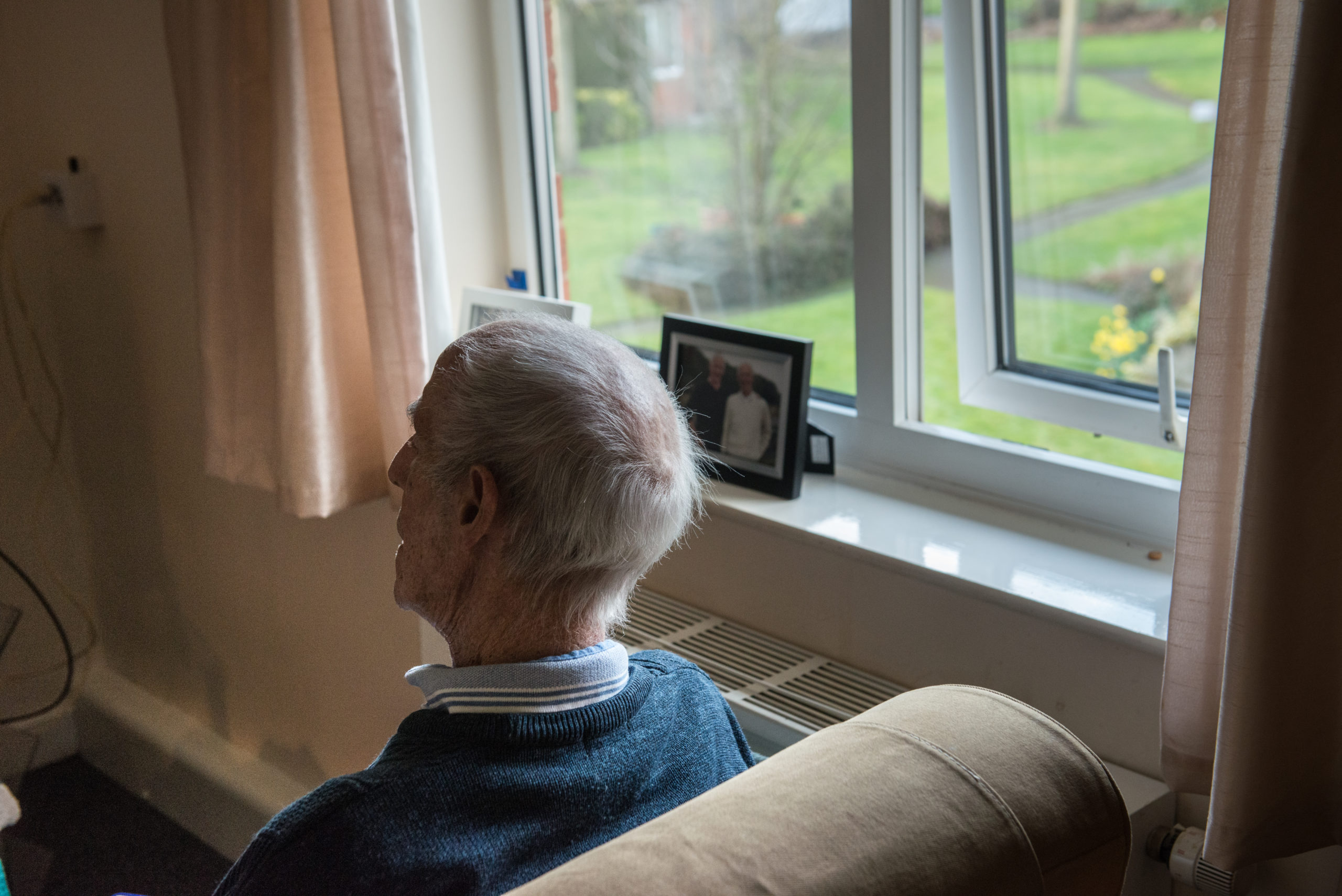
Peter’s Story
How might Compassionate Cymru work?
Peter is 84, he has been in hospital for a hip replacement but suffered some complications after it. He lives alone, but is anxious to return home. He has had a social services assessment and formal input from social care is not appropriate at this point. The Red Cross home from hospital scheme has been alerted to his discharge and they will do two visits (this is what they are contracted to do). When they visit they find that Peter is struggling with several practical aspects of living. His eyesight and hearing are very poor and he struggles to operate via the telephone, to control his heating, and to get out to bring shopping home.
He is very lonely and does not know his neighbours and his health is obviously poor. The Red Cross visitor is concerned that Peter will not manage well alone, and contacts a Compassionate Cymru community connector. Compassionate Cymru would be able to identify a community member(s) who is a volunteer, perhaps through local area co-ordinators, social prescriber or community connector (much more readily available now because of local volunteering groups mobilised in the pandemic), the volunteer (or organiser) would visit Peter, have a ‘What matters most?’ conversation and make a plan with Peter which suits his needs until he gets better, or his circumstances change again. The volunteer might sort out hearing aids and appointments, take Peter to the opticians, take him to the local weekly pensioner’s lunch in the community hall, or arrange calls from Age Cymru’s befriending service. What is arranged with Peter will be those things that are most important to him, prioritising his interests and what he sees are his needs.
Some weeks later Peter’s health deteriorates sharply and his gp explains that he is unlikely to recover from this illness and needs to decide how he wants to spend his last days. Peter is adamant that he will not go back into hospital. The community connector meets with the district nurse and social care local manager and explains that Compassionate Cymru can arrange a volunteer rota to fit around social care visits and the district nurses visits as Peter needs company, practical help with laundry and shopping, switching heating on and off and someone to call for help if his symptoms become distressing.
Compassionate Cymru can arrange a ‘no-one dies alone’ companion rota to visit for longer periods of time and allow Peter to die at home as he wishes. Two of those who join the visiting rota are people Peter met at the weekly lunch club so he already has some relationship with them and they are keen to support him to die at home.


